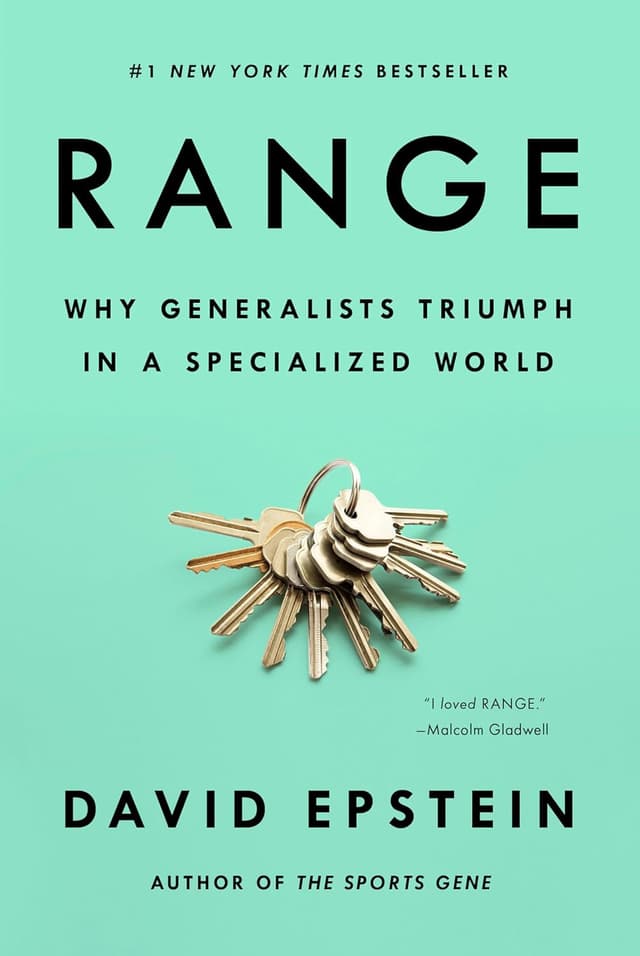Colin Nagy | May 31, 2019
Why is this interesting? - The Failed State Edition
On climate change, regional instability, and terrorism
Recommended Products

David Epstein's book 'Range' offers an interesting take on why experts have been so wrong so often, starting with the story of Paul Ehrlich and 'The Population Bomb'.

'The Population Bomb' by Paul R. Ehrlich is mentioned in David Epstein's discussion on the common inaccuracies of expert predictions.
Colin here. There’s rightfully a lot of debate, discussion, and obfuscation over climate change. But one of the things that has always struck me is that, for a large portion of the population, it doesn’t seem as immediate a threat as some of the other triage that happens in daily life. It’s not an episode of 24 with a ticking time bomb to defuse right now, so to speak, but something that lurks in the periphery and is often grossly misunderstood.
But how do we make the issue more urgent, boldfaced, and sharply articulated? The Guardian is changing the words they use to describe the environment, relying on crisper language to convey urgency. But one of the things I’ve always been intrigued by is the failure by advocates to strongly link climate change to security threats and terror. On a simple level, failed crops due to weather changes lead to failed states and the regional instability that follows. Think about early Bin Laden incubating Al Qaeda in Sudan, a poor country ravaged by civil war, or how ISIS seems to be now metastasizing in some parts of West Africa.
The Economist just did a deep dive report highlighting the linkage between these two issues:
Globally, the proportion of people who die violently has been falling for decades, as poverty has tumbled and wars between states have become rarer. But many fret that climate change will be so disruptive that it will make future conflicts more likely. Some fear that as the Arctic sea-ice melts, Russia, China and America will scramble for the sea lanes that will open up and the minerals that may lie beneath. Others worry that, as temperatures rise, thirsty countries such as India and Pakistan or Egypt and Ethiopia will fight over rivers they share with their neighbours.
However, the most immediate threat is of civil wars, not inter-state ones, and one of the most vulnerable regions is the Sahel, an arid strip below the Sahara desert. Here, the roots of many conflicts lie in competition over dwindling fertile land.
In Mali, for example, struggles over resources between farmers and herders as the population rises have escalated into ethnic cleansing...
Why is this interesting?
Climate change is not about temperatures getting hotter or cooler. It is about the second and third order effects: the fertility, or lack thereof, of land dictates its uses, offering and taking away opportunities for the people who rely on it, and, in turn, impacting the overall stability of the area. According to a UN report on climate change (which is worth a read in its entirety):
As the climate changes, so too do the conditions in which non-state armed groups operate. The complex risks presented by conflicts, climate change and increasingly fragile geophysical and socio-political conditions can contribute to the emergence and growth of non-state armed groups.
So, for those trying to build awareness about climate change, the fact is that terrorists thrive on this instability is perhaps a better, and more urgent attack line. By linking climate change to the very real threat of terror and militant groups like ISIS (something people do pay attention to as it hits a primal part of the brain concerned with safety), it might further slide the issue from a possible future problem to an urgent issue that needs immediate action. (CJN)
Chart of the Day:
A country’s Global Hunger Index (GHI) looks at four indicators — undernourishment, child wasting, child stunting, and child mortality — to develop a score. As you can see, things are moving in the right direction across the world since 2000 (if you’re interested you can find the 2018 results here). (NRB)

Quick Links:
Per Colin’s writeup, one of the most memorable podcasts I’ve ever listened to is this episode of Tim Harford’s Pop-Up Ideas featuring counterinsurgency expert David Kilcullen. The question is whether failed states, as CJN discusses, is actually too macro and whether we should be zooming further into the city level. As this New York Times piece from 2004 describes, there’s a notion from some national security experts that failed states are “being supplemented by the emergence of failed cities, where civil order succumbs to powerful criminal gangs. From Brazil to South Africa, these gangs pose a variety of nontraditional security threats -- from unchecked black-marketeering and the smuggling of people, guns and drugs to public-health breakdowns and alliances with terrorists.” (NRB)
The future of urban warfare from West Point. (CJN)
And while we’re on the topic of climate change, this David Epstein piece, extracted from his new book Range, offers an interesting take on the question of why experts have been so wrong so often, opening with the story Paul Ehrlich and the The Population Bomb. I’m incredibly excited to read the whole book. (NRB)
I like this Substack from Ahmed, who is the FT’s man in Saudi. He writes a lot of smart, on-the-ground stuff for people interested in the country, politics, business, etc. Worth a read and a subscribe. (CJN)
Thanks for reading,
Noah (NRB) & Colin (CJN)